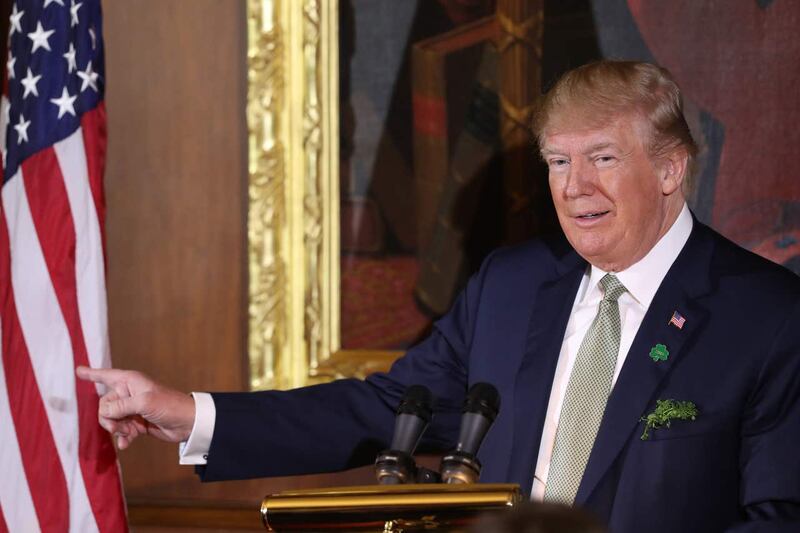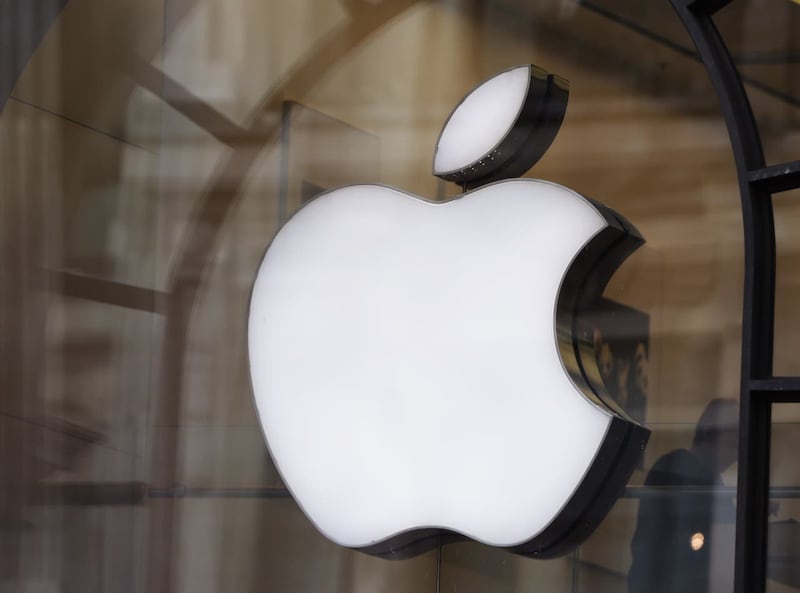It has been a year where the friction between technology and politics reached new heights.
How should any regulation of social media be handled, the debate around free speech and censorship and data collection and privacy concerns are all issues that have shaped the last 12 months.
Here is a look back at some of the biggest technology stories of 2021.

– Donald Trump is kicked off social media
The storming of the US Capitol on January 6 by supporters of former president Donald Trump – who had appeared to incite them along the way – was the final straw for the social media platforms.
After months of labelling Trump posts as misleading or hiding them from view, Facebook, Twitter and others banned the former president for posts they deemed to be inciting violence.
A debate around the power of social media quickly sparked into life – critics raised concerns that this amounted to censorship and that cutting off a then sitting world leader from such large forums was setting a dangerous precedent, while others argued that Mr Trump’s unfiltered and often misleading and blatantly untrue and harmful posts could not be ignored, regardless of the office he held.
Almost a year later and the bans remain in place, and Mr Trump is still looking for a new way to speak to his supporters broadly online.

– Apple continues war on data collection
Following the introduction of its nutrition labels on data collection for apps in 2020, Apple has spent 2021 doubling down on its pledge to better protect user privacy and clamp down on data collection, especially that which is used to target advertising online.
The biggest announcement came in the form of App Tracking Transparency (ATT), a tool that required app developers, for the first time, to ask users permission to track them and their activities on apps and websites outside of their own.
The tool gave users the ability to give and rescind permission to track them at any point, something Apple said would drastically cut third-party data collection.
In addition, the firm used its iOS 15 and iPadOS 15 software updates to introduce new tools to help users hide their IP address and location from being gathered by unsolicited marketing emails and one which enables them to hide the sites they’ve visited from third-party advertisers, again cutting down on data collection.

– Apple, Google and anti-competitive behaviour allegations
Apple may be receiving praise for its approach to user privacy, but regulators have spent 2021 raising concerns about how it and Google operate their respective iOS and Android app stores.
In Apple’s case, because its App Store is the only way users can download apps onto an Apple device, concerns have been raised about it being able to stifle competition by pushing its own services over those of its rivals and having a monopoly over the apps that appear in the store, as well as requiring app developers to use Apple’s payment system for in-app purchases – which Apple takes a commission from.
For Google, critics argue that its pre-loading of Google apps onto Android devices is also unfair and anti-competitive and its payment system structure is, like Apple’s, unfair.
Both companies have defended their practices saying their app stores are set up to provide safety and security for users while allowing developers to grow their businesses by being a part of their ecosystems.
Tweaks to app store rules have also started coming into effect – loosening some of the rules around payments – in a sign of the debate having an impact.
At the heart of this case is an ongoing legal battle from Epic Games, the maker of Fortnite, with the company pursuing legal action against the companies in the US and Europe on the issue after the hit game was removed from both app stores in 2020 after trying to introduce its own payment method that bypassed Apple and Google’s systems.
That battle is set to rumble on into 2022.

– Online harms and the Online Safety Bill
The Government’s plans to regulate social media and internet firms, holding them accountable for harmful content which appears on their platforms, continued to come together during the year.
The long-delayed Online Safety Bill has still not made it to Parliament, but a joint committee of MPs and peers have now urged ministers to toughen up the draft Bill to hold tech firms to account.
Their recommendations, published in December, called for more online harms – such as fraudulent adverts and cyberflashing – to be brought into the scope of the Bill and for named managers at companies to be criminally liable for any failures to protect users.
The Government’s response is expected early next year.








